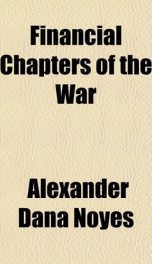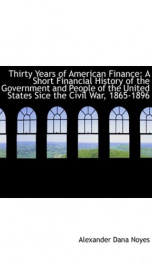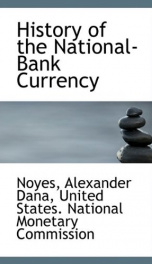financial chapters of the war

Purchase of this book includes free trial access to www.million-books.com where you can read more than a million books for free. This is an OCR edition with typos. Excerpt from book: CHAPTER II THE WAR PANIC WITH what spectacular suddenness the great European War, for whose possible occurrence financial Europe had during forty years been watching apprehensively, at last broke out at the end of July, 1914, no one who lived through that period is likely to forget. The sense of incredulity; the insistence that such a thing was not possible in our time; the final bewildering whirl of events, remembered by most people only as a cloud of confusion until the German advance on Paris, with the French and English armies retreating before the triumphant invader, emerged as a concrete factwhat all this signified in America it signified in Europe also, and in the great financial markets of Europe as well as among the people at large. Except for a general sense that events crowded on one another's heels with such rapidity that the latest bulletin of the newspaper "extra" went far toward blotting out recollection of what had gone before, few people even to-day remember what actually happened in that period of confusion. This was, and is, as true of the financial com- ON THE EVE OF WAR 21 munity as of the community at large. Austria's ultimatum to Servia created, in the hasty view of the reader of the despatches, the sense that a crisis had arisen which, because of its very gravity, must somehow be surmounted. In another week both Austria and Servia were lost to sight in the rush of larger consequences elsewhere on the map of Europe. For a single day the firing by the troops on the Dublin rioters seemed to be the event of paramount significance; then it was forgotten for a year. The predicament of American tourists, unable to get away from the area of fighting, held the centre of the news for a period only a little longer. How slowly the comprehension of what ...
Info about the book
Author:
Series:
Unknown
ISBN:
1178372235
Rating:
4.5/5 (5)Your rating:
0/5
Languge:
English
Users who have this book
Users who want this book
What readers are saying
What do you think? Write your own comment on this book!
write a commentif you like financial chapters of the war try:
Do you want to read a book that interests you? It’s EASY!
Create an account and send a request for reading to other users on the Webpage of the book!





